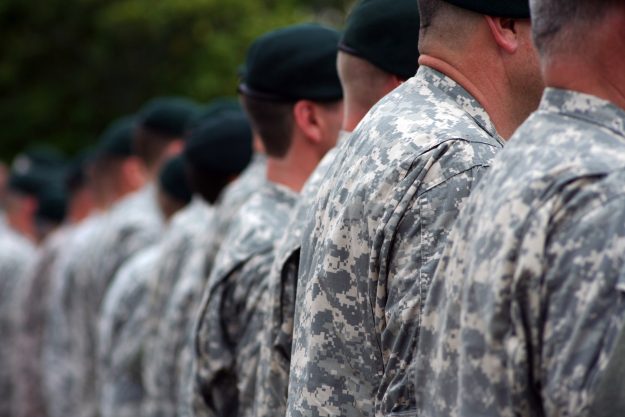The National Guard has more than 2,000 Guard members trained in cybersecurity and ready to assist states with their cyber needs, two National Guard Bureau officials said at an event Wednesday.
The National Guard is not facing the same cybersecurity personnel shortages that many states and local governments are experiencing, said Maj. Gen. Joe Jarrard, director of operations for the National Guard Bureau, at the Billington State and Local Cyber Security Conference in Washington, D.C. He spoke at the summit.
“Cyber warriors in the National Guard do a great job not only for federal authorities mobilized for unsupported cybercoms, but also at the state level,” Jarrard said.
National Guard cyber teams are currently preparing to assist states with the November presidential election. And many Guard members have received cyber training and are not yet “at capacity,” added Brigadier General Terry D. Williams, deputy director of operations for the National Guard Bureau.
“We need to start working now to prepare for the November election,” Williams said. “[We’re] It's really reassuring that the National Guard is reaching out to the states to see if they need anything. Of course, we will respect and understand if you do not need support. ”
Jarrard and Williams said the National Guard's success in recruiting and retaining cyber team members was not motivated by financial incentives, but rather by unique training opportunities and the ability to directly serve the community. He said it was highly likely.
National Guard members are active-duty professionals who are required to participate in weekend training and annual training. This schedule allows security guards to serve their communities while maintaining full-time jobs.
“We want them to make a lot of money in the cyber field Monday through Friday, and I tell them they can work for us on the weekends,” Jarrard said. he said. “I think we have a good group of people. Number one, they like to do exciting things at the keyboard, but number two, they like to serve their country, serve their community, and help people. It means I like it.”
“It's really a unique opportunity to bring together all the different organizations in the private sector to share knowledge,” Williams added.
But the training National Guard members receive in cybersecurity is also reflected in their civilian jobs. Mr Jarrard said he had once asked an employer if he was unwilling to lose an employee for about nine months during his mobilization.
“And they said, 'Well, it might hurt a little bit, but when you come back in nine months, they'll be the most trained cyber experts in the company,'” Jarrard said. said. “So they were willing to give up nine months.”
For example, Mr. Williams works full time as a senior cybersecurity advisor at the Cybersecurity and Infrastructure Security Agency.
“For the first time in my career, I think the civilian job and the National Guard job are aligned, which is really amazing,” Williams said.
Williams said CISA is currently building capacity to better respond to each state's cyber needs, and relies on the National Guard for some of that capacity.
Williams said the National Guard prides itself on being proactive when it comes to the state's needs. The agency provides national and regional cyber exercises aimed at supporting states, while also educating the National Guard on the capabilities it can provide when it comes to cyber response. In addition, some National Guard members also attend state meetings for incident response planning to maintain that relationship, Williams said.
“We have worked with you on our incident response plans and can share some of the lessons we learned from our post-response experiences,” Williams said.


